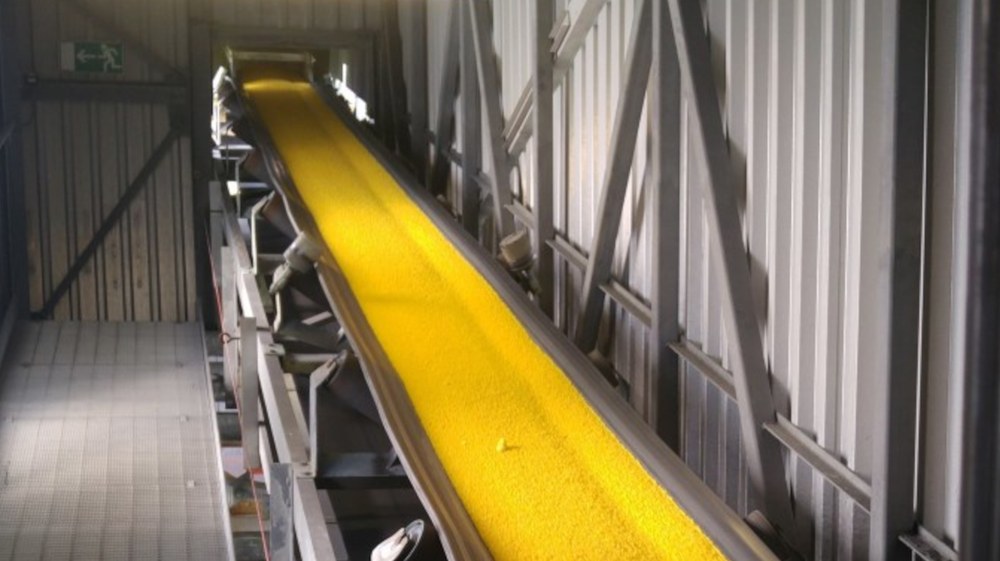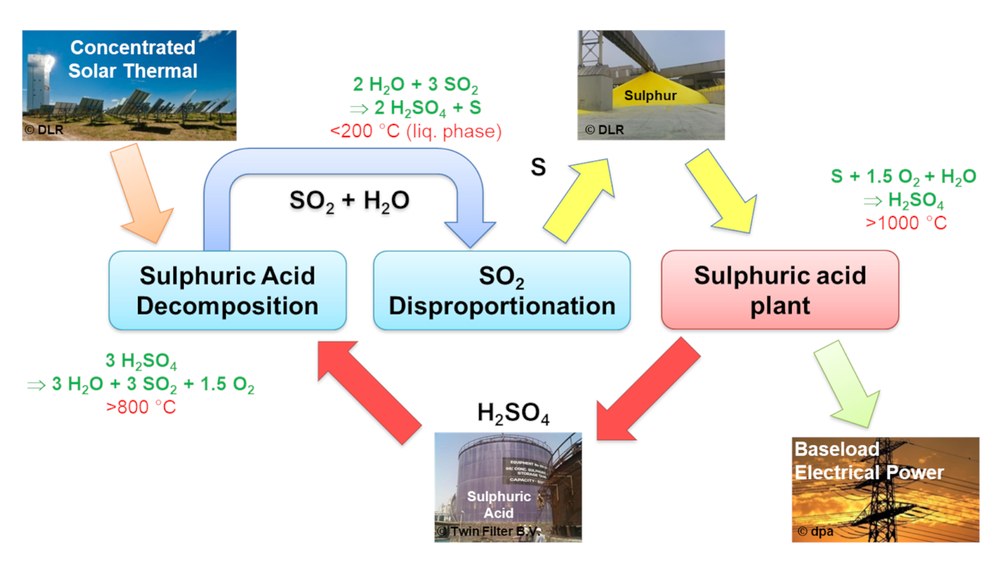BaSiS

On-demand solar power production using sulphur storage technology
Duration: 1.8.2018 – 31.12.2021
Of particular importance for concentrated solar power (CSP) technology is the development of appropriate storage systems for decoupling of solar radiation and power generation in time and location. Today, thermal storage using molten salts systems allow a continuous operation of commercial CSP also during night hours. However, in order to fully replace fossil-fired power plants with an annual operating period of over 6,000 hours in the future, long-term storage is required allowing for continuous 24-hour operation over the whole year and transportation of the stored solar energy into less sunny regions.
The project BaSiS (On-demand Solar Power Generation using Sulphur Storage Technology) is funded by the German state of North-Rhine-Westphalia and investigates a thermo-chemical sulphur storage cycle to permanently and efficiently store solar energy in chemical form as elemental sulphur at a 30 times higher energy density than today's molten salt systems. Sulphur – one of the most important raw material of the chemical industry with a global annual production of 70 million tons – is the fuel in conventional sulphuric acid plants which convert the waste heat from its sulphur burners in steam turbines to electricity. In addition, it would be possible to incorporate gas turbines into these plants creating highly efficient and emission-free combined cycle power plants for flexible and on-demand power generation.
In the investigated thermochemical cycle, the sulfuric acid produced during power generation is thermally decomposed in a CSP plant forming sulphur dioxide (SO2) which is converted into sulphur in an innovative disproportionation reactor. This solar sulphur production unit and the sulphur-fired combined cycle power plant can be located in completely different places, since storage and transport of sulphur and sulphuric acid is common practice and virtually loss-free over long periods and long distances.


The project BaSiS is closely associated to the Horizon 2020 project PEGASUS (www.pegasus-project.eu) which is also coordinated by DLR. It complements and extends the work carried out there taking benefit of several synergies. In BaSiS an optimized solar sulphuric acid splitting reactor for elevated pressure operation will be designed and tested. In addition, the disproportionation is further developed and experimentally operated. Finally, an extensive overall process simulation with a techno-economic analysis, feasibility study and safety analysis will be carried out in BaSiS.
Project | BaSiS |
|---|---|
Duration | 1.8.2018 - 31.12.2021 |
Project participants |
|
Funding | European Regional Development Fund (ERDF) "Investitionen in Wachstum und Beschäftigung" in the framework of "Leitmarktwettbewerb Energieumweltwirtschaft.NRW" |


